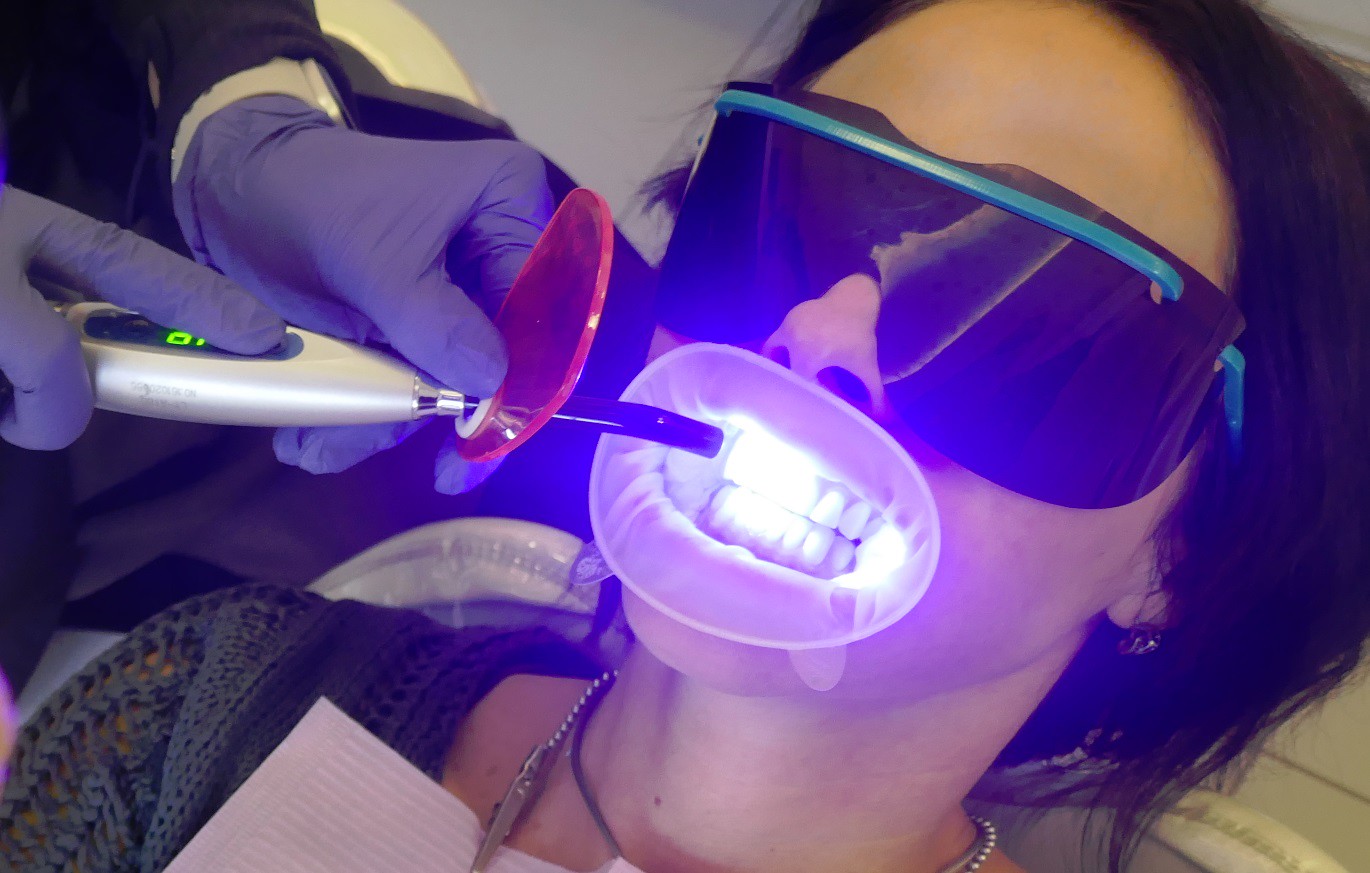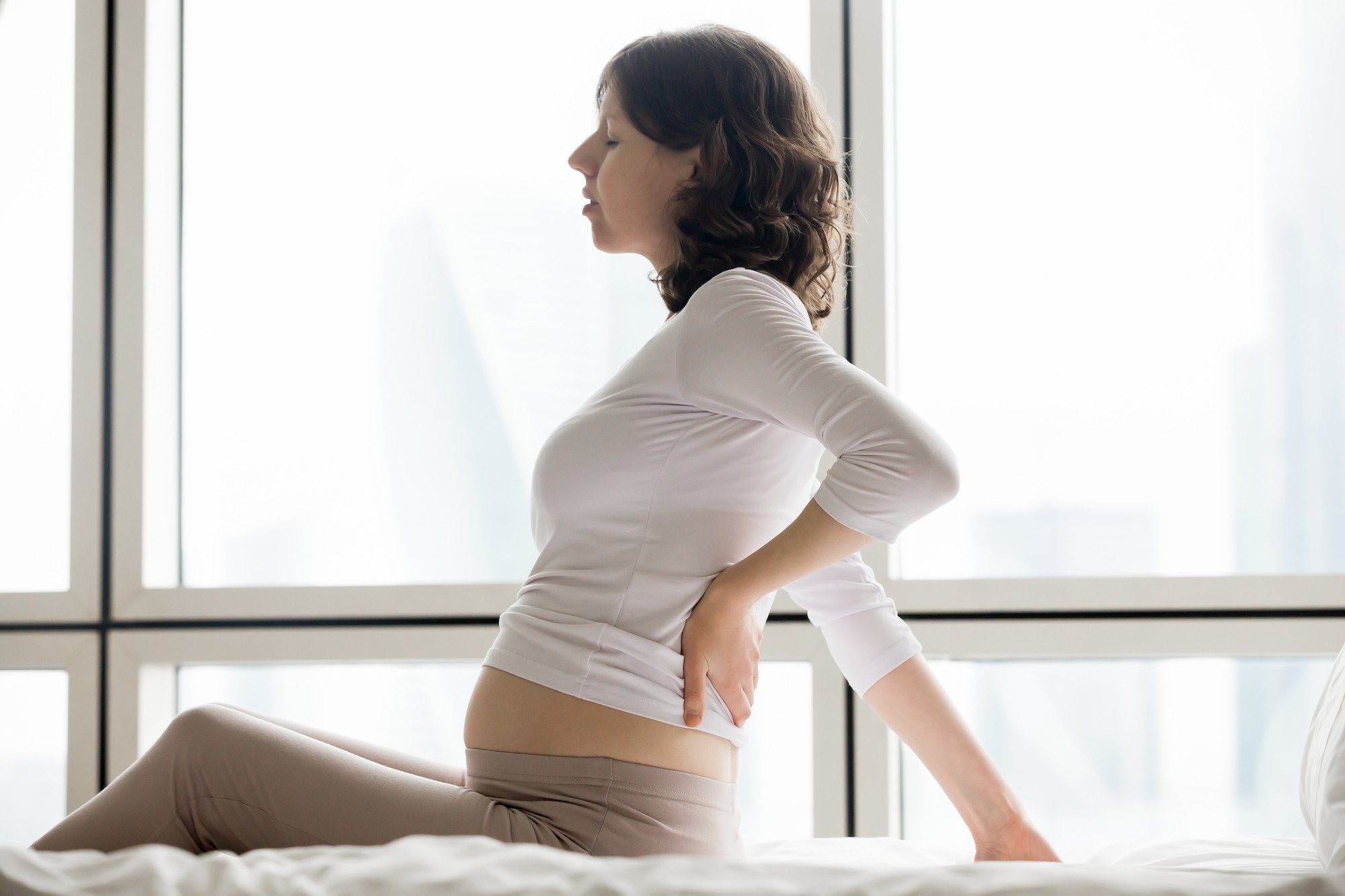There are plenty of reasons to get teeth whitened: In anticipation of being in a wedding, for example. But what would be a simple decision for most women gets a little more complicated for those who are pregnant. Are teeth whitening and pregnancy a bad combination?
In its recommendations about dental care during pregnancy, the American Dental Association does not give an opinion about teeth whitening. There simply have not been enough studies to know for sure if whitening chemicals can harm an unborn baby. The chemicals used in the process are considered safe; but when considering their unborn baby, many moms exercise an extra dose of caution.
What we do know is that teeth whitening products do not typically warn against use by pregnant women. It’s best to talk to the doctor and dentist and follow their advice.
Teeth Whitening Chemicals
Commercial teeth whitening products contain either hydrogen peroxide or carbamide peroxide. Dentists use a higher concentration of whitening agents than those found in over-the-counter products. Whitening toothpaste, rinses, or gel strips contain anywhere from 3 to 20% peroxide. Professional whitening products contain 15 to 43%.
Peroxide solutions are not dangerous in the amounts used for whitening. Ingestion can cause nausea, but only in very large quantities. The tiny bit that could be swallowed accidentally during teeth whitening is considered harmless, and likely won’t hurt an unborn baby. Peroxide is metabolized quickly if ingested, and would not be passed on to a fetus. For the same reason, it shouldn’t pass through the mother’s body to breast milk either.
While this might seem to indicate that teeth whitening while pregnant is fine, there still isn’t complete data to support that conclusion. Consider once-common things that pregnant women now avoid. Medical research in recent decades has discovered the dangers of things like hair dye, caffeine, tuna, and deli meat.
Some doctors and dentists have no problem recommending teeth whitening for their pregnant patients; others might have different advice, depending on the trimester of the pregnancy. Since whitening is purely cosmetic, its potential benefits might not outweigh even a potential risk to an unborn baby.
Gum Problems, Teeth Whitening, and Pregnancy

One risk of teeth whitening is possible damage to gum tissue. The dentist places a protective barrier over the gums during whitening, but the process can still be hard on gum health. Some at-home products can also cause sensitivity and irritation, especially if they’re used incorrectly or too often.
Sore, red gums are sometimes associated with pregnancy. Compared to 30% of the entire adult population, 60% to 75% of pregnant women have gingivitis. Gingivitis is an early stage of periodontitis, commonly called gum disease. Fluctuating hormones contribute to the condition.
While having teeth whitened while pregnant may not be harmful to the baby, it can make a mom’s already inflamed gums worse. Periodontal disease is not only painful, but could require invasive procedures like periodontal scaling and root planing.
Enamel Damage and Tooth Sensitivity
A couple of things during pregnancy can make teeth more susceptible to cavities and other dental health concerns. First, cravings may have expectant mothers reaching for more sugary snacks that could contribute to tooth decay. Second, there’s a chance for more acid in the mouth due to morning sickness. If not thoroughly and properly cleaned, this can eat away at the tooth enamel, making cavities more likely.
Teeth whitening compounds can also weaken tooth enamel, especially if applied too often or in very high concentrations. Teeth whitening puts additional strain on enamel that is already compromised because of the pregnancy.
Teeth Whitening Doesn’t Mix With General Discomfort

Even if it was proven completely safe to whiten teeth while pregnant, there are several reasons why a mom-to-be might want to avoid it.
Some pregnant women have trouble even brushing their teeth while pregnant. The taste or smell of the toothpaste might nauseate them. The act of brushing and flossing can trigger an extra-sensitive gag reflex.
If this is the case, whitening treatments may be uncomfortable. They might find the chemicals’ taste and smell unpleasant. The procedure itself could make them want to gag, not to mention having to sit in the dentist chair for an extended period of time.
While none of these things are potentially dangerous, they may steer women away from treatments while they’re expecting.
Alternatives to Teeth Whitening
There are some things a pregnant woman can try to brighten her smile without teeth whitening products. First of all, good oral hygiene is always a must. It may not make teeth much whiter, but a clean mouth and fresh breath are always a good thing.
Pregnant patients should also keep up with their regular dental appointments and cleanings. A professional cleaning that removes plaque can whiten teeth considerably without any extra chemicals.
Some women switch to decaf coffee or soda when pregnant. These will dull the teeth as much as their fully caffeinated counterparts. Sticking to things that won’t stain teeth can help avoid the need for whiteners.
Although most are unproven by science, some people swear by home whitening remedies such as brushing with baking soda, rinsing with apple cider vinegar, or certain properties of fruits like papayas and pineapple. Pregnant women should discuss the pros and cons of any of these with their doctor—including whether or not they actually work.
If a woman really wants to use a whitening product, she should stick to an over-the-counter toothpaste or rinse. The amount of exposure to peroxide is lessened by using at-home products rather than professional whitening at the dentist. Just remember that it won’t eliminate exposure entirely. It’s best to check the concentration of peroxide in any product, and avoid overuse.
Postponing Teeth Whitening
If you want to whiten your teeth, that’s perfectly understandable. There are many cases where you would want your smile to be at its best. But you also want what’s best for an unborn baby, and so it’s no surprise that some people are conflicted.
Our best advice is to bring up the topic with a doctor to weigh the potential risks to both you and your baby.


